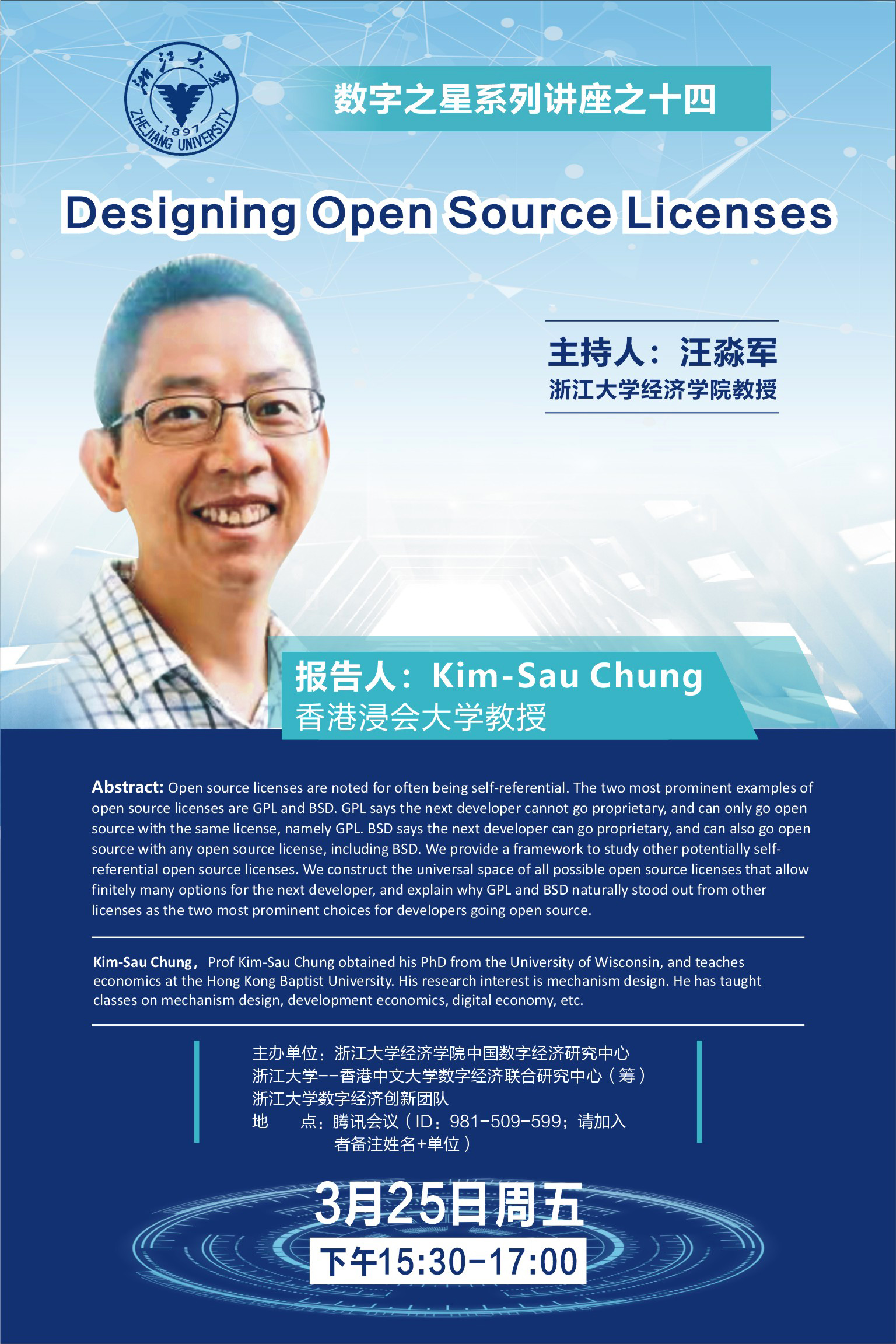
【 The Digital Star Seminar Series No.14 】Designing Open Source Licenses
Date: 25 March 2022 (Fri)
Time: 10:00am - 11:30am (Hong Kong Time, UTC+8)
Platform: Tencent Meeting (ID 981-509-599)
Host: Prof. Miaojun Wang (School of Economics, Zhejiang University)
Presenter: Prof. Kim-Sau Chung (Hong Kong Baptist University)
Co-authors: Melody Lo (Hong Kong Baptist University)
Abstract:
Open source licenses are noted for often being self-referential. The two most prominent examples of open source licenses are GPL and BSD. GPL says the next developer cannot go proprietary, and can only go open source with the same license, namely GPL. BSD says the next developer can go proprietary, and can also go open source with any open source license, including BSD. We provide a framework to study other potentially self-referential open source licenses. We construct the universal space of all possible open source licenses that allow finitely many options for the next developer, and explain why GPL and BSD naturally stood out from other licenses as the two most prominent choices for developers going open source.
Intro to Prof. Kim-Sau Chung:
Prof. Kim-Sau Chung obtained his PhD from the University of Wisconsin, and teaches economics at the Hong Kong Baptist University. His research interest is mechanism design. He has taught classes on mechanism design, development economics, digital economy, etc.
Organization:
- The Chinese University of Hong Kong-Zhejiang University Joint Research Center for Digital Economy
- China Digital Economy Research Center of School of Economics, Zhejiang University
- Zhejiang University Digital Economy Innovation Research Team
Intro to The Digital Star Seminar Series:
The Digital Star Seminar Series is co-hosted by the China Digital Economy Research Center of School of Economics, Zhejiang University, and the Chinese University of Hong Kong-Zhejiang University Joint Research Center for Digital Economy. This series of seminars will study the development of the digital economy and China's economic transformation based on the practice of China's digital transformation. We will invite domestic and overseas scholars to share and discuss the latest research on the digital economy and the Chinese economy. We hope that this academic platform can become a paradise for the study of the digital economy. More importantly, it can generate insights that significantly impact the digital economy and Chinese economy, which will help promote digital transformation and high-quality economic development in Chinese society.